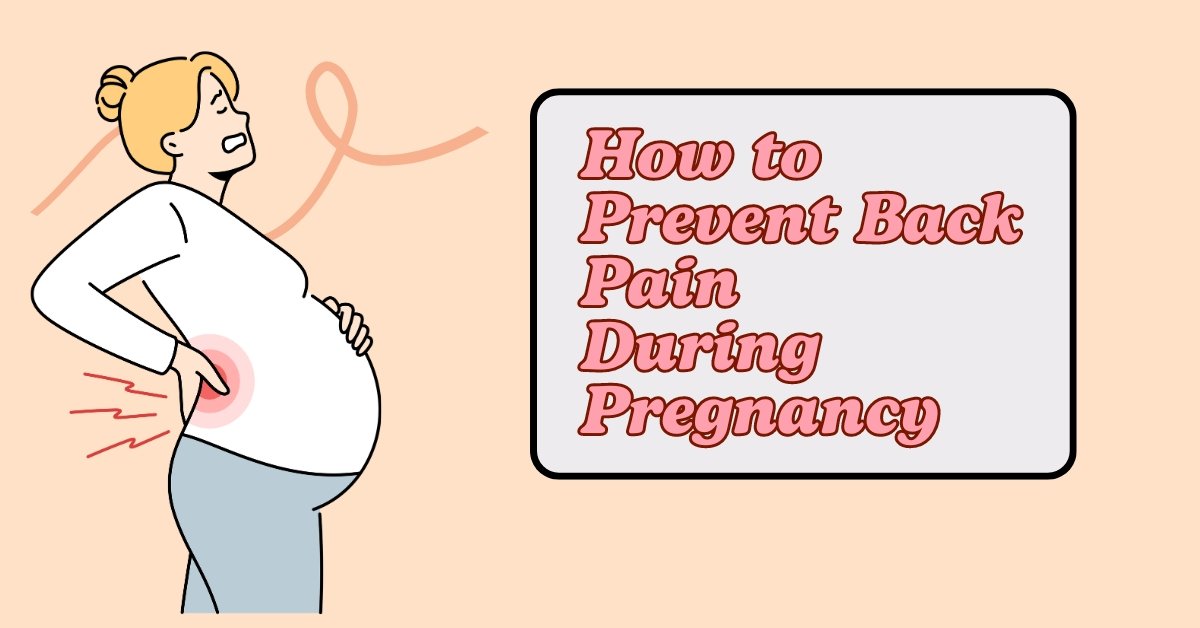
Pregnancy is a transformative and beautiful journey that brings many changes, including some physical challenges like back pain. As your body adapts to accommodate your growing baby, the added weight and shifting center of gravity can strain your back, leading to discomfort. With the right knowledge and proactive measures, you can minimize or even avoid back pain during pregnancy.
This guide provides practical tips, exercises, and lifestyle adjustments to help maintain a healthy spine, promote proper posture, and enjoy a more comfortable pregnancy.
Types of Back Pain During Pregnancy
Back pain during pregnancy can manifest in several forms due to physical changes and added stress on the body:
- Lumbar Pain: The most common type, affecting the lower back, often due to the increased curvature of the spine as the growing uterus shifts the center of gravity forward. Poor posture and improper lifting can exacerbate this pain.
- Pelvic Girdle Pain (PGP): Also known as symphysis pubis dysfunction (SPD), PGP involves pain in the pelvic joints, often due to hormonal changes that increase joint mobility and cause instability.
- Sciatica: Caused by pressure on the sciatic nerve from the growing uterus, leading to shooting pain, numbness, or tingling along the nerve’s path from the lower back down the legs.
- Upper Back Pain: Less common but can result from changes in posture, increased breast size, and strain on the muscles and ligaments supporting the spine.
- Muscle Spasms: Sudden, sharp pain caused by involuntary muscle contractions, often due to overexertion, poor posture, or sudden movements.
- Round Ligament Pain: Not strictly back pain, but discomfort in the lower abdomen and groin area that can radiate to the lower back as the ligaments supporting the uterus stretch.
Each type of back pain may require specific management strategies, including exercise, proper posture, ergonomic adjustments, and sometimes physical therapy or chiropractic care. Consult with your healthcare provider for personalized advice.
Tips to Avoid Back Pain During Pregnancy
1. Wear Supportive Shoes
Choose athletic or low-heeled shoes with good arch support to reduce spine strain.
2. Use a Stool
If standing for long periods causes pain, place one foot on a low stool and alternate feet. This helps keep the pelvis tilted forward and the back in a neutral position. Use the same technique when sitting for extended periods.
3. Perform Pelvic Tilts
Start pelvic tilts in your first trimester to reduce lower back pain and strengthen the pelvis. Lie flat on your back with knees bent and feet flat. Slowly rock back and push your pelvis and lower back into the floor, tightening your stomach and buttocks. Hold for 2 seconds, release, and repeat 10 times for 2-3 sets.
4. Do Leg Lifts
Lie on your side and lift your leg 8-10 inches off the floor to strengthen buttock and hip muscles. Hold for 3-5 seconds, lower, and repeat 5 times per leg, gradually working up to 10 reps.
5. Sleep with Pillows
Sleep on your side with a pillow between your legs. In the second and third trimesters, a thin pillow under your abdomen can also be comforting.
6. Wear a Maternity Support Belt
Support belts can reduce back pain while walking, standing, or lying down.
7. Apply Ice and Heat Packs
Alternate ice and heat packs on your back for 10-15 minutes to reduce muscle strain and swelling. Set aside time to relax and put your feet up daily.
8. Avoid Slouching
Use a rolled-up towel or lumbar cushion behind your lower back while sitting to maintain good posture.
9. Enjoy Daily Walks
A daily 20-30 minute walk is an easy and beneficial exercise.
10. Seek Professional Help
If you experience persistent or severe back pain, consult your healthcare provider. They may recommend physical therapy, chiropractic care, or other treatments.
Conclusion
Preventing and managing back pain during pregnancy is vital for the well-being and comfort of expectant mothers. By practicing good posture, engaging in regular exercise, using proper body mechanics, wearing supportive shoes, and seeking professional help when necessary, you can significantly reduce back pain.
Always consult your healthcare provider for personalized advice. Remember that every pregnancy is unique, so find what works best for you and prioritize self-care. pregnancy Monitoring devices like handheld fetal Dopplers can help track your progress and ensure the health of both you and your baby.

